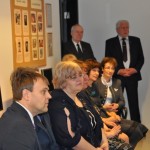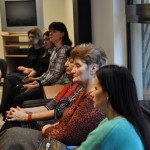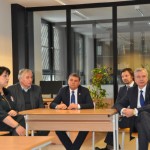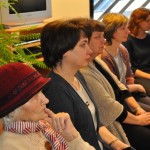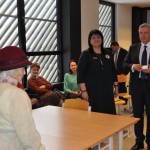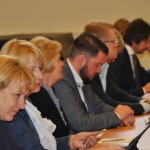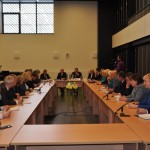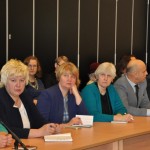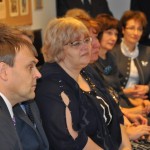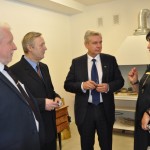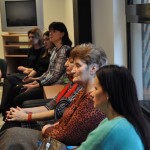Minister of Education and Science Karlis Šadurskis visits Rēzekne Municipality Maltas High School

On Friday, February 16, Minister of Education and Science, Kārlis Šadurskis, visited Rēzekne Municipality Maltas High School. When meeting with school teachers, the Minister listened to their opinion on the training of six-year-old children in schools, the education of competences and the transition to training in the national language starting in 2020. Kārlis Šadurskis said that school teachers are working very well, the question is not the content of the content but the hourly forms: “there is a lack of real contact with life in schools, and children don't get information about how the skills acquired at school can be useful to them in real life. The education of competencies helps teachers of different subjects and the real acquirer will be a student. 'Maltas High School is one of the schools of Rezekne, where the competency education model is built, and Director Vincent Deme confirmed that the school is ready for work on the new model. AT Maltas, 583 children are currently in secondary school, 15 educational programmes are being successfully implemented, both basic education and special and minority school programmes. The school also participates in the implementation of various international projects.“ There might be problems with the training of six-year-old children in very many schools because of the lack of classes, sleeping rooms and playroom. We are prepared to take six-year-olds because we have all the necessary facilities and we have trained teachers, "SAID Vincent Deme, Director of the Maltas High School.
While meeting with representatives of the Latgale Planning Region, the Minister said about current developments in the field of education, as well as wanted to hear the views of local government representatives on the forthcoming reforms. “We know that many parents are worried about how their six-year-old children feel at school, but they need to know that these children will be taught by special programmes where most of the training process will borrow the acquisition of knowledge in the form of games and games, taking into account the specificities of small pupils. Similarly, the transition to the national language – primary school students will learn most of the language in their mother tongue, this country's share of language will increase in primary school, but in secondary school they will be able to learn and communicate in the language of the country, thus they will not have problems with training in Latvian universities and integration into the labour market,” said Minister of Education and Science Kārlis Šadurskis.
Diana Selecka Text and Photo
